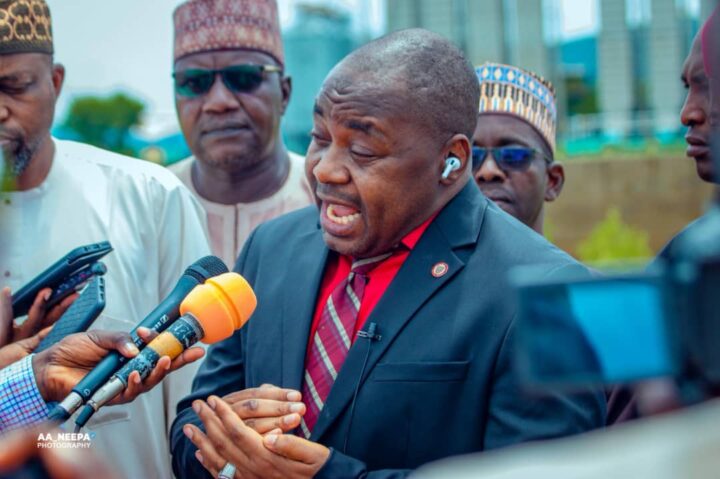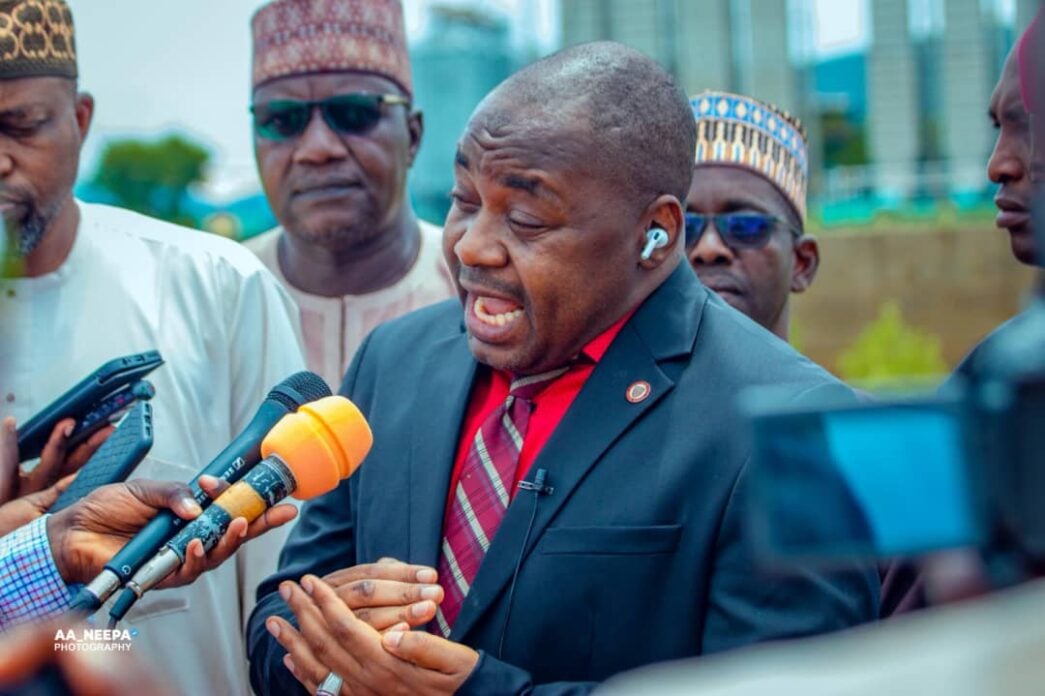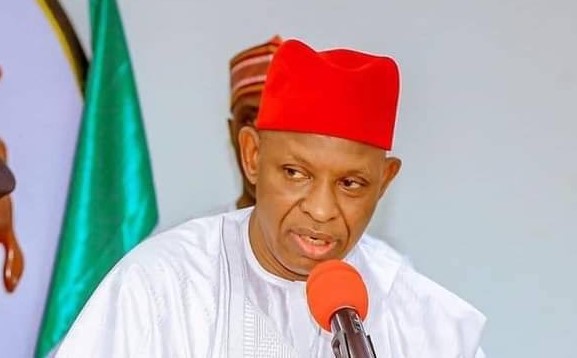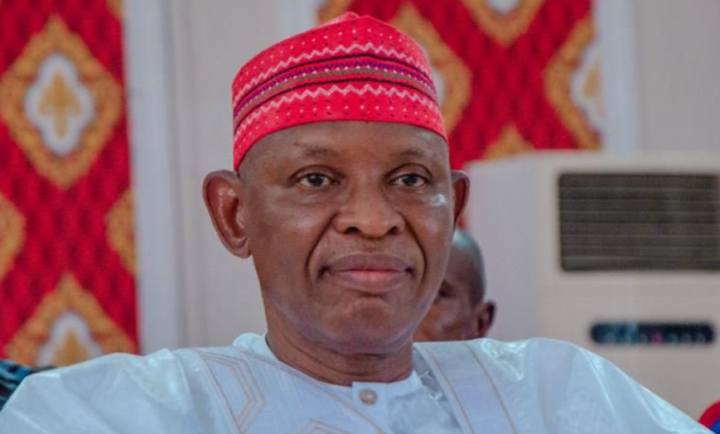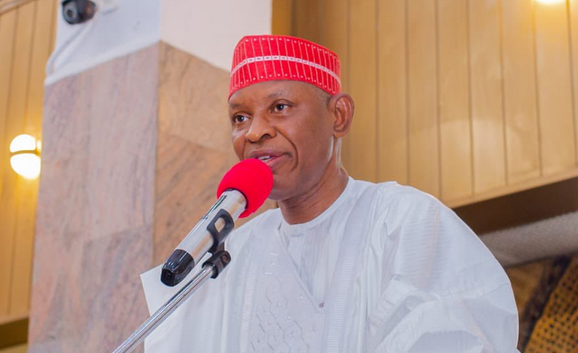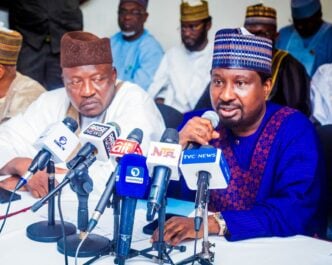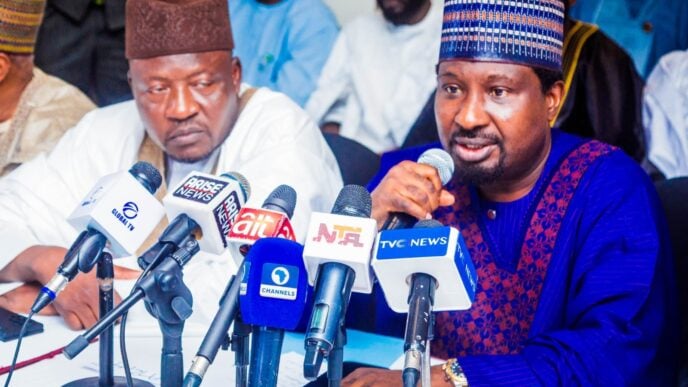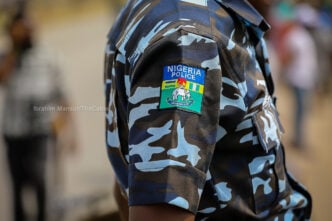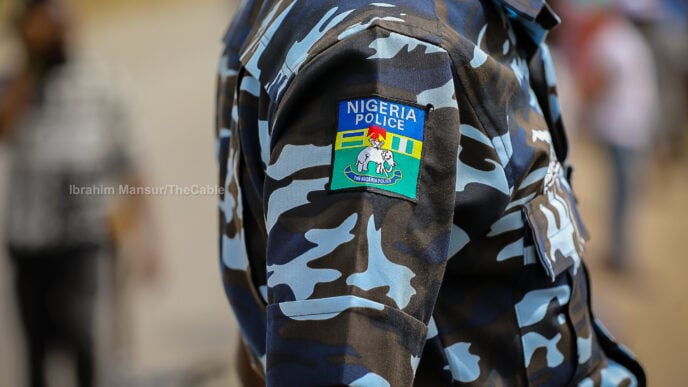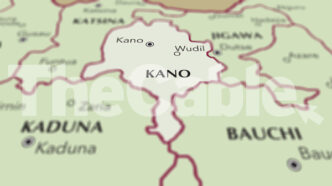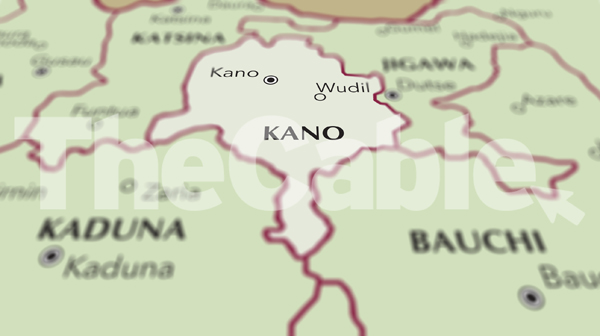Muhuyi Rimingado, chairman of the panel, speaking to journalists during the facility visit
The Kano government committee investigating the alleged vandalism and sale of the Nigerian Meat and Allied Products (NIMAP) abattoir says it has uncovered “extensive destruction and disappearance of equipment” at the Chalawa facility.
Last month, Abba Yusuf, governor of Kano, inaugurated an 11-member committee to investigate the alleged sale of the abattoir by the administration of Abdullahi Ganduje, former governor of the state.
The multi-billion-naira facility, located at the Chalawa industrial area and built during the tenure of Rabiu Kwankwaso, the former governor of Kano, was said to have been auctioned off under Ganduje’s administration.
On Tuesday, Muhuyi Rimingado, chairman of the panel, described the current state of the abattoir as “monumental destruction of unimaginable magnitude.”
Advertisement
“We have found only the remains of what was once an executive project designed to process meat and blood for fish farming, aimed at boosting hygiene and economic activities in Kano,” Rimingado said.
“What we see today is monumental destruction of unimaginable magnitude.”
He said equipment worth over N20 billion, some procured internationally, had been vandalised or illegally sold.
Advertisement
The chairman added that parts of the land housing the abattoir had been subdivided, with some portions allegedly sold at auction or allocated free to individuals.
“Our investigation focuses on identifying those responsible for the destruction and tracing the missing equipment. We have located some buyers and are working to recover what we can,” he said.
Rimingado assured that the committee would conduct its work meticulously and without bias, submitting recommendations to the state government upon completion.
“The government set up this committee to protect public assets with significant economic and health potential,” he said.
Advertisement
“While other states struggle to establish such facilities, Kano had one for decades, only for it to be destroyed by vested interests.”
The committee’s report is expected to identify those responsible and advise on recovery and future protection of state-owned assets.

